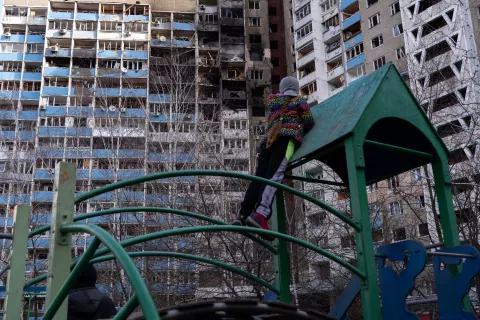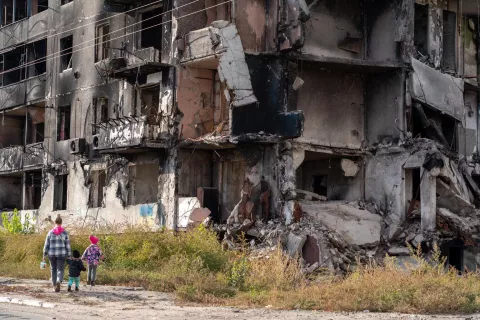More than 3,000 children released from armed groups in South Sudan since conflict began, but thousands more continue to be used
![On 17 April 2018 in Yambio, South Sudan, [NAMES CHANGED] (right-left) Ganiko, 12 yrs, and Jackson, 13 yrs, stand during a ceremony to release children from the ranks of armed groups and start a process of reintegration. Jackson and Ganiko were best friends when they served together with the armed group.](/sites/default/files/styles/press_release_feature/public/20190212_SouthSudan_ChildSoldiers.JPG.webp?itok=oBEfMYDB)
NEW YORK/YAMBIO, South Sudan, 12 February 2019 – One hundred and nineteen children were released by an armed group in South Sudan Tuesday, bringing the total number of those freed since the conflict began to more than 3,100. Forty-eight girls were among the group, with the youngest child being 10-years-old.
“Every child no longer with an armed group represents a childhood restored and a future regained,” said UNICEF Executive Director, Henrietta Fore, who visited South Sudan in January last year. “More and more children are being freed from armed groups and armed forces in South Sudan, and while this is an encouraging development, there is a long way to go before all of the more than 19,000 children still in their ranks are returned to their families.”
Since February 2018, more than 1,000 children have been released by various armed groups.
Tuesday’s release took place in the south-west town of Yambio where the children had formerly been associated with the South Sudan National Liberation Movement, which signed a peace agreement with the government in 2016.
During the process, each child was registered and provided with a certificate stating they were no longer affiliated with the group. They then met with social workers, health workers and education specialists to assess their immediate needs. They were also provided with a reintegration package including clothes, shoes, and other basic commodities. As with other groups, each child is provided with three years of reintegration support to assist their return to civilian life and prevent re-recruitment. For each released child assisted, one vulnerable child and their family from the host community is also supported to foster acceptance and promote a more sustainable reintegration.
“This year marks the 30th anniversary of the UN Convention on the Rights of the Child which requires governments to meet the basic needs of children and to help them reach their full potential,” said Fore. “Five months after the signing of a peace agreement, UNICEF calls on all parties to South Sudan’s conflict to recommit themselves to upholding these rights and to ensuring that children are never soldiers.”
The release coincided with International Day against the Use of Child Soldiers. While exact data on the number of children used and recruited into armed conflict are difficult to confirm because of the unlawful nature of child recruitment, UNICEF estimates that tens of thousands of boys and girls under the age of 18 are used in conflicts worldwide. Many have been taken by force, while others join due to economic or social pressure. Children who are displaced or living in poverty are even more vulnerable to recruitment. Children are recruited or used for various functions by armed forces and groups, including as fighters, cooks, porters, messengers and spies, or they are subjected to sexual exploitation.


